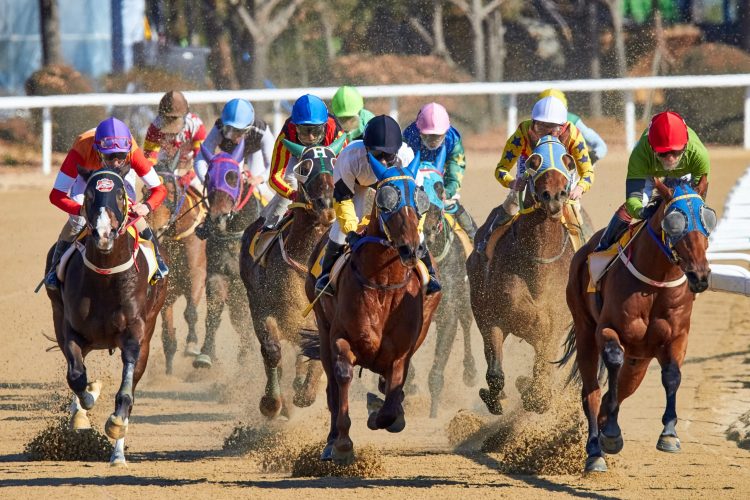Sports betting could turn into a lucrative hobby if you manage to make profits out of it. From all sports, horse racing is undeniably one of the most rewarding to watch and bet on.
What You Need to Know Before Placing Your Bet at the Races

What You Need to Know Before Placing Your Bet at the Races
Sports betting could turn into a lucrative hobby if you manage to make profits out of it. From all sports, horse racing is undeniably one of the most rewarding to watch and bet on. But if you’re a rookie, how can you pick the right horse? Each bet requires thorough analysis and strategy unless you want to lose money. To become a winner here’s are some horse racing tips you need to know before placing your bet at the races.
Learn, learn, learn
Hoards of people bet millions of pounds on horse races every year, but only a small number manages to make a profit out of it. That’s because inexperienced gamblers don’t do their homework, letting the chance to decide the odds for them.
The first thing to do if you want to win is to check the racing program and racing forms before betting. These forms won’t tell you which horse is going to win, but they’ll help you make a more informed decision.
Select the odds
Once you’ve decided which horse to bet on and the type of bet to place, check a few reputable gambling sites and the on-course bookmaker to find out the odds for a specific bet. Then, go for the options that give you the highest chances of winning.
Make multiple bets
When betting on races, most people typically choose a horse, bet on it, and hope they will win. However, there are many other types of bets you can place, and making multiple bets can increase your odds.
If you want to win, you should learn how to use multiple types of bets strategically. For instance, you could bet on multiple horses to increase your odds, or bet on multiple races.
Here are some common types of bets that you can consider:
- Win: This is the simplest bet where you bet on a horse to finish first.
- Place: You bet on your horse to finish either first or second. This gives you a higher chance of winning than a win bet.
- Show: A show bet means you win if your horse finishes first, second, or third. It’s less risky but typically offers lower payouts.
- Exacta: You bet on which horses will finish first and second in the exact order. This bet offers higher payouts than place and show bets.
- Quinella: Similar to an exacta, a quinella bet is on two horses to finish first and second in either order. It’s easier to win than an exacta but generally pays less.
- Trifecta: You predict the first three finishers in their exact order. This is more difficult to win but offers larger payouts.
- Superfecta: You bet on the horses that will finish first, second, third, and fourth in the exact order. Because of the difficulty of predicting the top four in order, the payouts for superfecta bets can be very high.
- Daily Double: You pick the winners of two consecutive races. This requires more knowledge about the participating horses but offers the potential for good payouts.
- Pick 3/Pick 4/Pick 5/Pick 6: These bets involve selecting the winners of three, four, five, or six consecutive races. They are challenging but can offer significant returns if all your horses win.
By using these different types of bets strategically, you can increase your chances of winning or manage risk more effectively in horse racing.
Don’t bet on every single race
Betting on multiple races can increase your odds, but placing a bet on every single race could lead to bankruptcy. The key is to select the races you want to place a bet on. For instance, you could bet on all season’s derby races or on the derbies and triple crowns, but you can skip the pre-derbies.
Focusing on fewer races allows you to do more thorough research and analysis. This might include studying the horses’ past performances, the track conditions, and other racing factors like jockey performance and horse training.
Some bettors focus on specific types of races (e.g., only steeplechases or flat races) or tracks where they have more knowledge or better information. This can lead to more informed and thus potentially more successful betting decisions.
And think of it. Constantly analyzing every race can be mentally exhausting and might lead to decision fatigue, reducing the effectiveness of your betting decisions over time.
Keep cash under control
The main risk that comes with betting is losing control and spending too much. That’s why it is crucial to plan before starting.
First, check your financial situation and set up a betting budget. If possible, transfer this budget on a back-up bank account to keep it separate from your main account. Now, you should decide how much you want to spend on each bet – don’t use more than 3% on each stake, or you could lose money fast. For instance, if your budget is £1,000, you shouldn’t spend more than £30 on a stake. If you miss the bet, decrease the amount accordingly, to stay in the 1%-3% range. If you win, you can choose to either cash out the profits and maintain the original bankroll, or increase the bankroll with all or a portion of the amount you won.
For safer betting, it is recommended to stick to a set budget for at least a few months before adding your victories to the bankroll.








